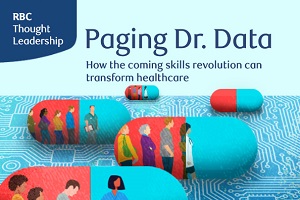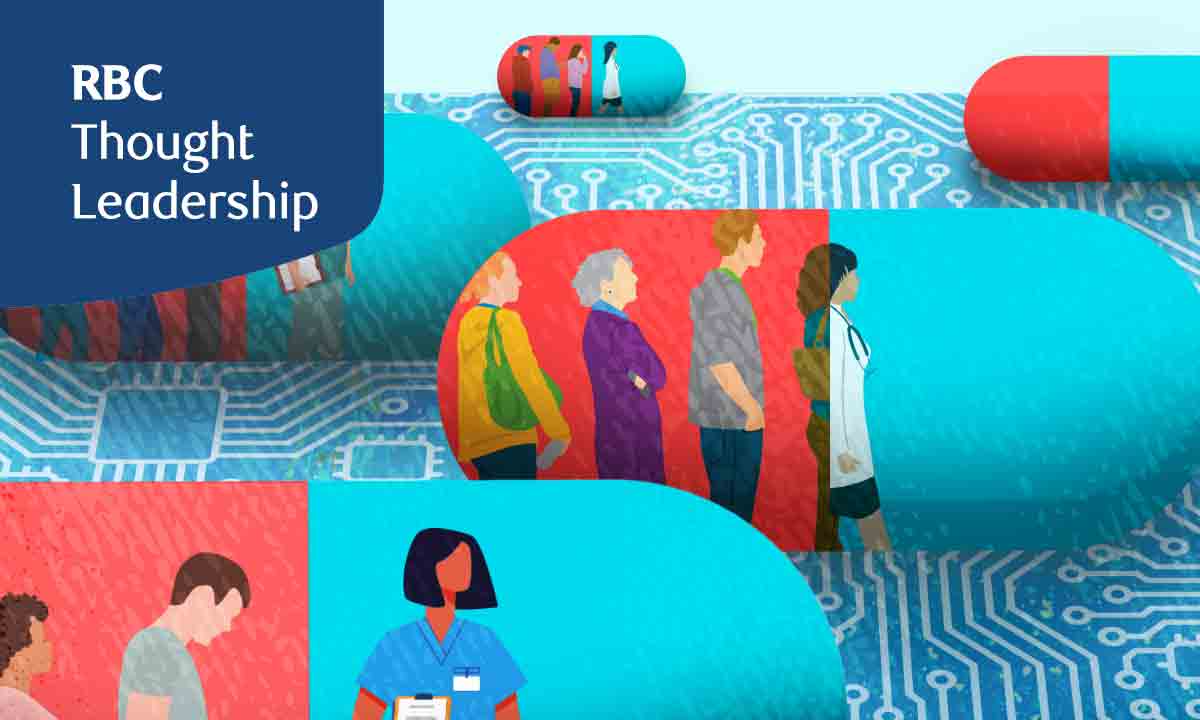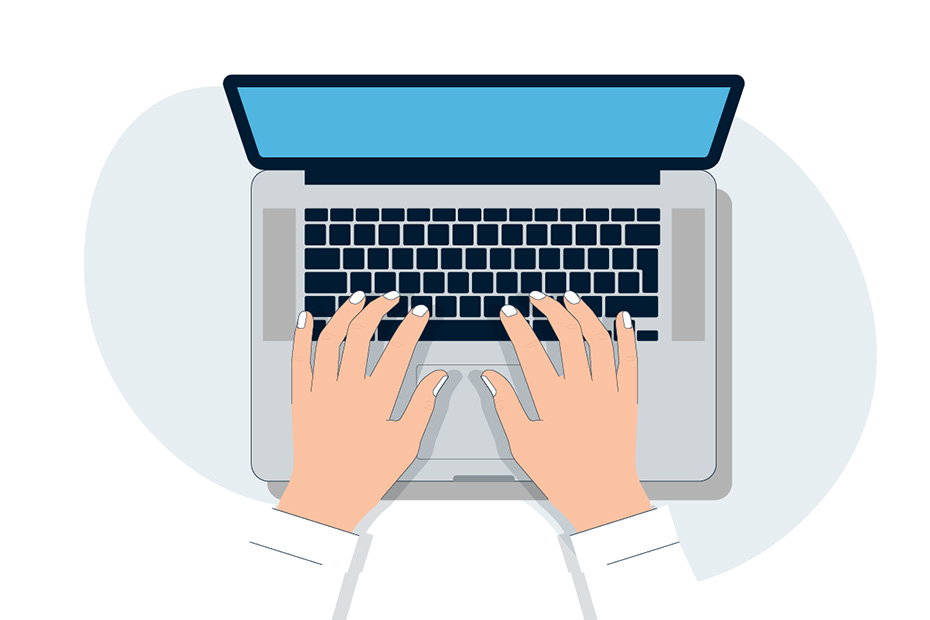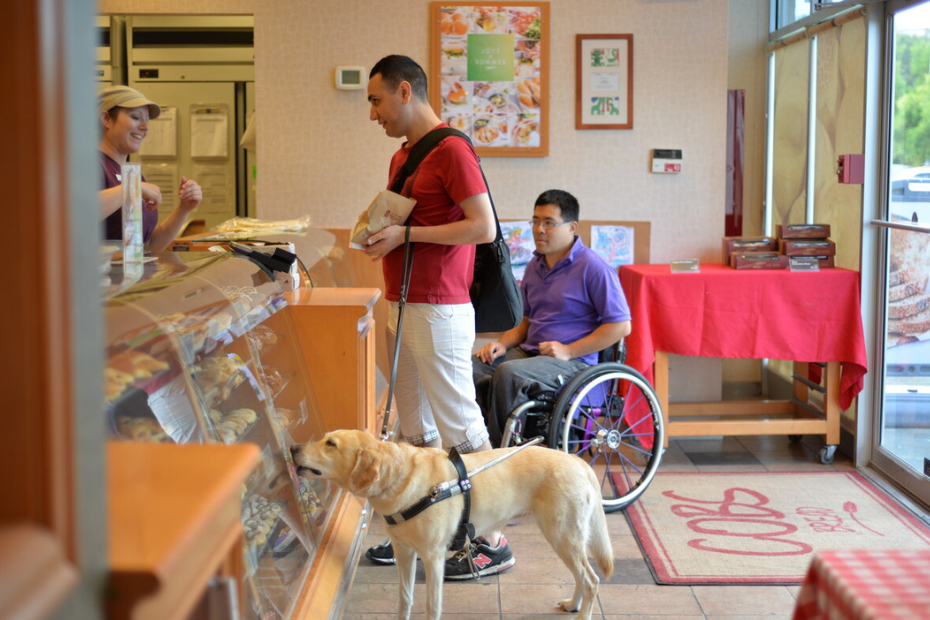But in a workforce buffeted by technological change, healthcare has an advantage.
Due to the profoundly human nature of the work, advanced technologies don’t pose a significant threat to the physicians, nurses, therapists and others who provide all manner of care to Canadians. Automation will create efficiencies and replace some work, but don’t expect a robot to deliver a cancer diagnosis or replace hands-on homecare anytime soon.
That’s a welcome prognosis, but Canada’s healthcare sector is facing a critical test. The country’s aging population is poised to become a silver tsunami that will add another $120 billion in healthcare costs over the next decade. To harness the full power of technology in a country where one in four people will be seniors, the sector will need to embrace new ways of working.

Read the Full Report
According to Paging Dr. Data, a new RBC report, around 17% of occupations in the healthcare sector face a risk from automation—half the level faced by the workforce as a whole.
The sector’s robust job creation is also set to continue: there will be 370,000 job openings by 2025, and the sector will be short of workers under even the most optimistic of projections. The shortfall offers a potential career path for workers displaced in other sectors, many of whom already have some of the core skills sought in healthcare.
Which brings us to the reskilling challenge. Canada’s healthcare system needs to up its skills game, and fast. Workers hoping to make the leap into healthcare will need the time, funds, and external support to prepare for a career switch. Those already in the sector will need to retrain for disruptive technologies. And the sector will be looking for entirely new skills too. Think wearable-device coding and 3D printing design.
In a sea of specialists, our research revealed some themes in terms of skills needed: digital fluency (the ability to interact with and analyze data, not just collect it), an ability to deliver virtual care (as telemedicine expands), and navigational skills (to assist patients’ journey through an increasingly complex health system). Finally, the human skills at the core of the best healthcare—empathy, active listening, critical thinking and complex problem-solving—will be more important than ever.
The skills revolution is already happening in healthcare. Educators are adapting courses from other disciplines, and training for adaptability and resiliency. Doctors are talking to AI specialists about how they can build algorithms to improve care. Hospitals are adopting some of the state-of-the-art technology, enabling them to attract new talent.
Properly designed, a mix of technology, skills and innovative management can help Canada prepare for the silver tsunami. We still have time to get it right. But there’s a particular urgency to making the skills economy work for healthcare.
To learn more about the impending silver tsunami and its implications on Canada’s healthcare sector, listen to our podcast episode, Solving for the Silver Tsunami.
For more insights about social, economic and technological trends, please visit the RBC Thought Leadership website.
This article is intended as general information only and is not to be relied upon as constituting legal, financial or other professional advice. A professional advisor should be consulted regarding your specific situation. Information presented is believed to be factual and up-to-date but we do not guarantee its accuracy and it should not be regarded as a complete analysis of the subjects discussed. All expressions of opinion reflect the judgment of the authors as of the date of publication and are subject to change. No endorsement of any third parties or their advice, opinions, information, products or services is expressly given or implied by Royal Bank of Canada or any of its affiliates.



















